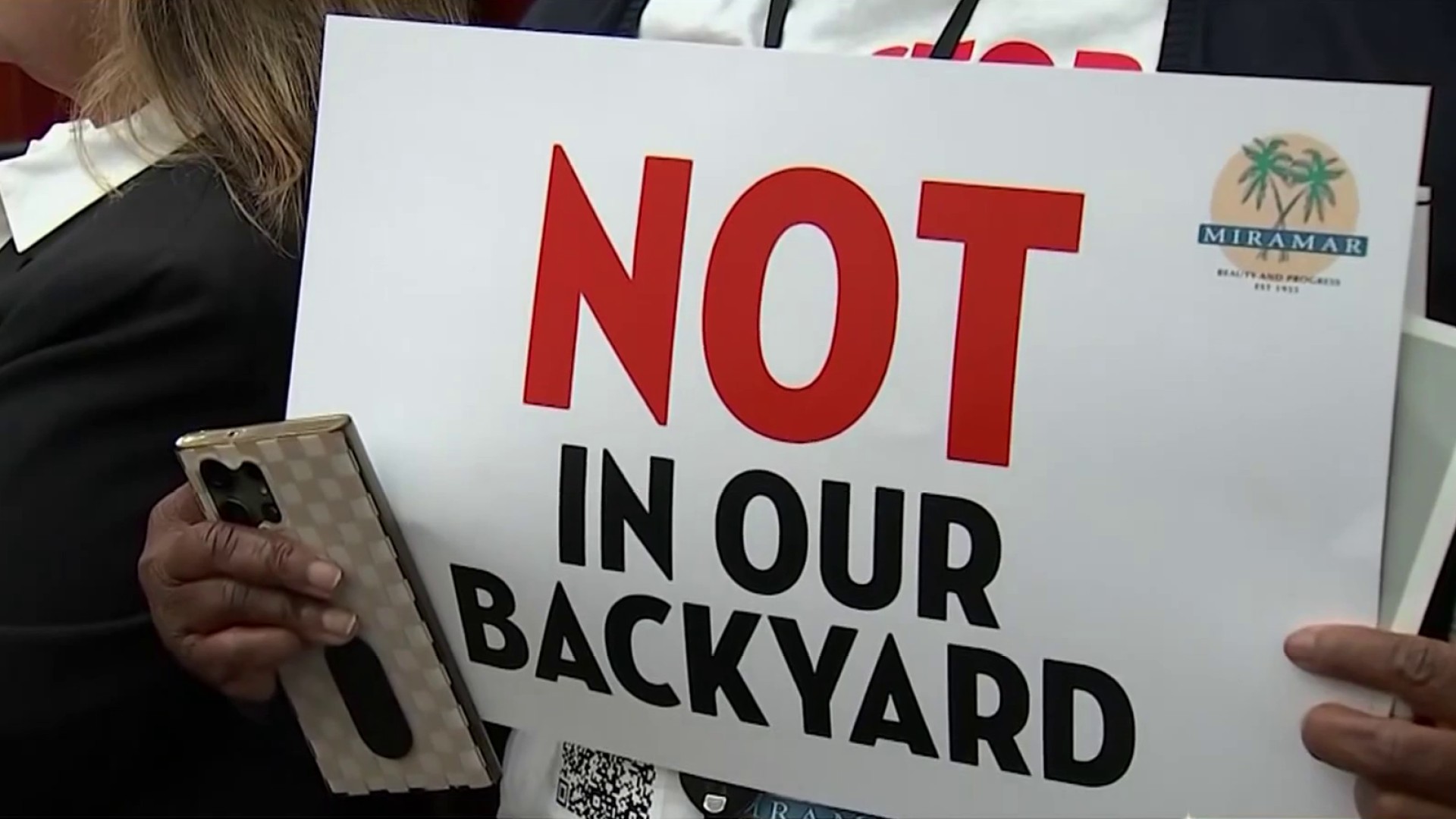Children in South Florida are now eligible to receive their COVID-19 shots after Pfizer and BioNTech's vaccine for school-aged children was approved by the federal government last Tuesday.
Kids in the 5 to 11 age group can receive their vaccine at select CVS Pharmacy and Walgreens stores across Miami-Dade and Broward counties. Parents can begin scheduling appointments for as early as Saturday, November 6.
While many parents are relieved that children can finally get inoculated, others have questions or fears regarding side effects and potency.
Here's what South Florida parents should know about the COVID-19 vaccine for children.
Get South Florida local news, weather forecasts and entertainment stories to your inbox. Sign up for NBC South Florida newsletters.
Are COVID-19 vaccinations for children mandatory in the state of Florida?
During a news conference Thursday, Florida Gov. Ron DeSantis said vaccinations will not be required for school-aged children.
Local
"There will be no mandate for COVID vaccines for children allowed, and that is a parent's decision," DeSantis said.
Vaccinations for kids are currently voluntary in Broward and Palm Beach school districts.
Both school systems are offering vaccinations through the Florida Department of Health, or the school district itself.
Vaccination sites in Palm Beach County can be found on the district's Pfizer Pediatric COVID-19 Vaccine Sites page.
Vaccination sites can also be found on the Broward Schools webpage.
This section will be updated as more information becomes available.
Is the Pfizer vaccine FDA approved for kids?
The U.S. Food and Drug Administration authorized the emergency use of the Pfizer-BioNTech COVID-19 vaccine for children ages 5 to 11 on October 29.
According to the FDA, the vaccine was found to be 90.7% effective in preventing COVID-19 in children in that age group. The agency said no serious side effects have been detected in an ongoing study.
"The authorization was based on the FDA’s thorough and transparent evaluation of the data that included input from independent advisory committee experts who overwhelmingly voted in favor of making the vaccine available to children in this age group," a news release said.
What is the dosage of the COVID-19 vaccine for kids?
The Pfizer and BioNTech vaccine for kids is a much lower dose than what is currently available, according to Dr.Marcos Mestre, chief medical officer at Nicklaus Children’s Hospital.
“It's 10 micrograms as opposed to 30 micrograms, which is what the current vaccine has been used for those 12 and over,” he said.
“As of right now, at least per Pfizer, there are studies that look very promising in terms of an antibody response that we see in the children, and protection from infection for those children as well.”
The vaccine requires two doses three weeks apart, plus two more weeks for full protection. That means children who get vaccinated before Thanksgiving will be covered by Christmas.
What are the side effects of the COVID-19 vaccine for kids ages 5 to 11?
Arm soreness, fever and fatigue are some possible side effects of the COVID-19 vaccine for kids ages 5 to 11.
Side effects can last anywhere from 24 to 48 hours.
Dr. Ronald Ford, chief medical officer at Joe DiMaggio Children's Hospital, said side effects are generally minimal and self-limited.
"Usually things like muscle soreness and a little bit of fatigue, but nothing serious," he said.
Dr. Mestre said one thing doctors were concerned about when testing the vaccine was myocarditis, or inflammatory changes around the heart that had been seen in certain adolescents.
The condition was seen in some adolescents (12 and over) who received the 30 microgram dose, which is three times stronger than the dosage for the 5 to 11 age group.
"Thankfully, the great majority of those cases have been very mild and there have been no deaths secondary to the myocarditis," Dr. Mestre said.
Researchers did not see any cases of myocarditis again in Pfizer's study for the 5 to 11 age group, Dr. Mestre said.
Because the dose of the vaccine for kids is so low, Dr. Mestre said the prevalence of side effects may also be decreased.
"It's going to be the best of both worlds. You're going to have the response that you need to protect them, but also the the the lesser of the side effects secondary to the lower dose."
What are the potential risks of catching COVID-19 in this age group vs. getting the vaccine?
Some parents are wrangling with the question: "Are the risks of vaccinating my child greater than the risks of COVID-19 itself?"
Health experts and doctors agree: While children generally fare well against the coronavirus, vaccination adds another layer of protection and safety.
Additionally, COVID-19 can be dangerous for certain children.
"COVID can be innocuous in this age group but it can also be extremely serious," said Dr. Ford, noting that kids in that age group have ended up in the intensive care unit at the hospital.
"It's difficult to predict which kids will get sicker from it, versus the COVID vaccine which really appears to be extremely safe and extremely effective in this age group."
Dr. Mestre echoed the sentiment.
"I do want to reassure parents, even if your child were to get a COVID-19 infection, the great majority of them do very well and do not require hospitalization," he said.
"Only about one percent of children require hospitalization if they're infected with COVID-19. However, when you take one percent of a very large number, it becomes fairly significant. So this progress [with vaccines] in terms of dealing with any future variants, I think, will be of great assistance in keeping our kids healthy."
What impact could the COVID vaccine for 5-11 year olds have when it comes to fighting COVID and stopping the spread overall?
First and foremost, the vaccine would ensure protection for children, Dr. Mestre said.
And while children generally fare well against COVID-19, a diagnosis does put a certain level of stress on parents, he said.
"Even though they do very well, it does put a strain on families in terms of having to keep a child out if they've been exposed, or if they get sick themselves."
Dr. Mestre noted that while health experts initially didn't think children could spread COVID-19 easily, the onset of the Delta variant has changed that.
"We now know that children can spread this infection easily. So we definitely hope one of the greater effects is preventing spread [of the virus]."
Dr. Ford said studies show the vaccine is extremely effective in producing an immune response that's protective for kids against COVID-19 and is safe.
Getting children vaccinated is a personal decision, Dr. Mestre said, especially in terms of helping our kids feel comfortable being around older individuals, those who may be immunosuppressed, or other at-risk groups.
How should parents talk to their kids about the vaccine?
When it comes to talking to kids about the COVID-19 vaccine, Dr. Mestre has a simple piece of advice.
"I always explain to parents not to instill fear," he said.
"Something that we don't want to do either as physicians is instill fear, but to be respectful and understand that this virus is something that we have to deal with, but nothing to fear."
The Associated Press contributed to this report.



